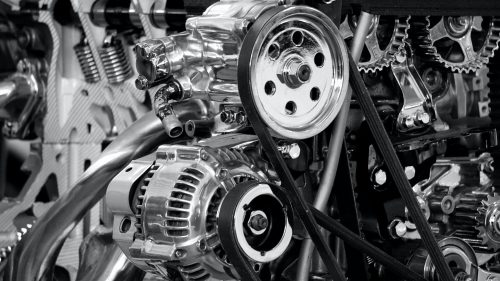
Exploring the intricate interplay between plug-in performance chips and the enduring vitality of your engine opens a gateway to a deeper comprehension of automotive dynamics. In the pursuit of optimal vehicle performance, it is imperative to unravel the nuanced connection between these technological enhancements and the long-term health of your engine.
Plug-in performance chips, also known as tuners or programmers, are aftermarket devices designed to optimize a vehicle’s engine performance. These small electronic modules connect to the engine control unit (ECU) and can modify various parameters such as fuel injection timing, air-fuel ratio, and ignition timing.
Plug-in performance chips work by fine-tuning the engine’s settings to improve efficiency and power output. By adjusting these parameters, the chips aim to unleash the full potential of the engine, often resulting in increased horsepower and torque.
One of the indirect benefits of plug-in performance chips is the potential for improved fuel efficiency. By optimizing the combustion process, the engine operates more efficiently, potentially reducing fuel consumption. This, in turn, can contribute to less wear and tear on engine components over time.
Contrary to common misconceptions, properly tuned plug-in performance chips can actually reduce stress on certain engine components. By optimizing parameters like air-fuel ratio and ignition timing, the engine operates within a more controlled and efficient range, potentially minimizing wear on critical parts.
It’s essential to note that some plug-in performance chips may lead to increased engine temperatures. While this is often a trade-off for higher performance, it underscores the importance of ensuring that the vehicle’s cooling system is up to the task. Regular maintenance and, if necessary, upgrades to the cooling system can mitigate potential risks.
Vehicle warranties are a crucial aspect to consider when installing plug-in performance chips. While some manufacturers may void warranties if aftermarket modifications are detected, others may have specific guidelines regarding permissible modifications. It’s essential to research and understand the warranty implications before making any changes.
Not all plug-in performance chips are created equal. Choosing a reputable and well-reviewed chip from a trusted manufacturer is crucial to ensure compatibility with your vehicle and minimize the risk of adverse effects on engine longevity.
In the quest for enhanced engine performance, understanding the nuanced relationship between plug-in performance chips and engine health is paramount. While these chips offer exciting opportunities for increased power and efficiency, a balanced approach, coupled with informed decision-making, is key. By delving into the intricacies of how these chips operate and their potential impact on engine components, drivers can make more informed choices to maximize both performance and longevity.
Remember, every vehicle is unique, and consulting with automotive professionals or specialists before making modifications can provide valuable insights tailored to your specific make and model. As technology advances, so too does our ability to unlock the full potential of our vehicles, ensuring a thrilling driving experience without compromising long-term reliability.
